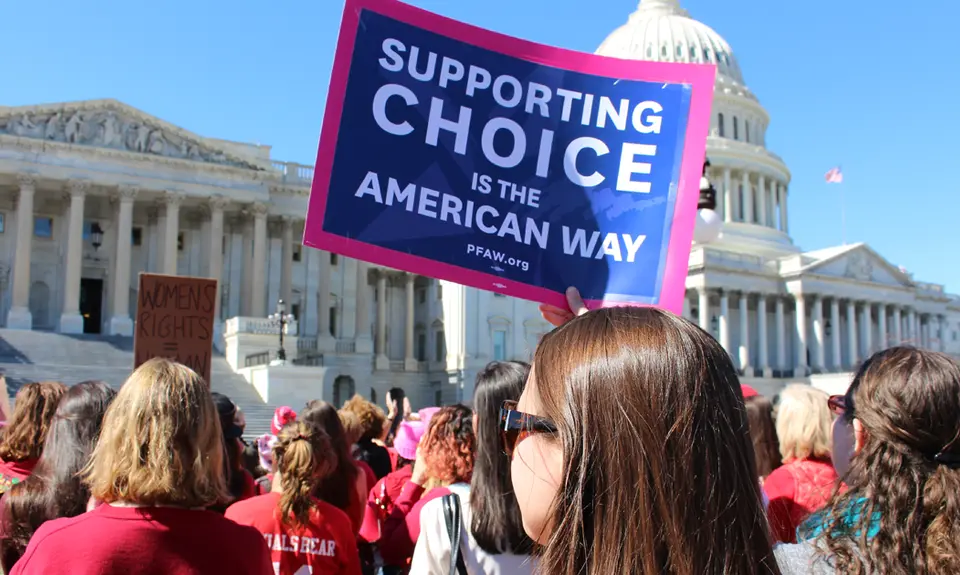The anti-abortion activists who fought to get Donald Trump’s most extreme judicial nominees confirmed got a down payment on their investment today: The Supreme Court announced it will hear Dobbs v. Jackson Women’s Health, a case generated as a mechanism for the far-right justices to rewrite the Constitution and eliminate a person’s right to have an abortion.
At issue is a Mississippi law that bans abortion after 15 weeks “except in a medical emergency or in the case of a severe fetal abnormality.” Fifteen weeks is before fetal viability. As even the extremely conservative Fifth Circuit recognized when it held the law unconstitutional:
In an unbroken line dating to Roe v. Wade, the Supreme Court’s abortion cases have established (and affirmed, and re-affirmed) a woman’s right to choose an abortion before viability. … The law at issue is a ban. Thus, we affirm the district court’s invalidation of the law …
As Right Wing Watch’s Peter Montgomery has reported, the Mississippi law being challenged was “based on model legislation promoted by the religious-right legal group Alliance Defending Freedom as part of its plan to ‘eradicate’ Roe v. Wade.” The Center for Reproductive Rights has been in court litigating against the law since its passage, and it will be arguing the case before the Supreme Court next term.
The Supreme Court has long held that states cannot ban pre-viability abortions. Not even the most extreme anti-abortion judges Trump put on the bench have crossed this red line. For instance, when this case was before the Fifth Circuit, Trump judge James Ho voted with the unanimous majority to strike the ban down, even as he wrote his own separate concurrence railing against the abortion rights precedent he was reluctantly recognizing. The future of that precedent became cloudy when Republicans successfully abused their power to prevent President Obama from filling the vacancy caused by Justice Antonin Scalia’s death, then changed the Senate rules to make it easier to get Trump’s Supreme Court nominees confirmed.
As a presidential candidate, Trump had promised that his nominees would overrule Roe v. Wade. Neil Gorsuch and Brett Kavanaugh have made their anti-abortion agenda clear since being confirmed, and Amy Barrett’s opposition to abortion rights was one of the main reasons she was nominated and rushed through confirmation so soon before the presidential election.
It is alarming that the conservative justices, clearly feeling their oats, have chosen to hear this case. There is simply no way to uphold Mississippi’s law without dismantling the core holding of Roe v. Wade recognizing the constitutional right to decide for oneself whether to continue a pregnancy.
In case that message had not gotten through, the Court made it clearer by limiting the legal issues it wants the parties to address to just one of the three presented by Mississippi. The Court did not grant certiorari on the limited issue of how much authority lower courts have to ask whether a state’s explanation for abortion restrictions is simply pretext to get around longstanding precedent recognizing abortion rights. Instead, it told the parties to address a question that does not presume the ongoing validity of those precedents in the first place: whether states have the authority to ban abortion before viability.
This case shows how important it is who nominates our nation’s federal judges and who confirms them. Trump may have been removed from office, but his three justices will serve for decades to come.
